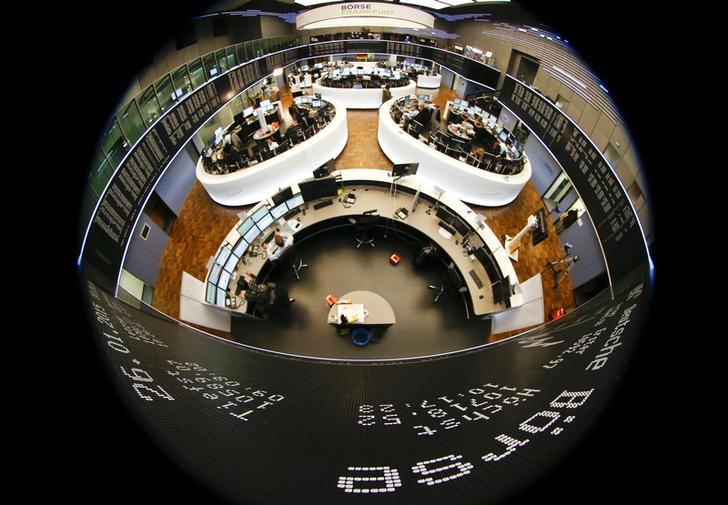* Japan Economy Minister resigns
* European stocks hampered by concerns over Fed
* Chinese stocks fall, oil prices remain choppy
By Sudip Kar-Gupta
LONDON, Jan 28 (Reuters) - Uncertainty over the future path
U.S. interest rates weighed on European stocks on Thursday,
while the resignation of Japan's economy minister impacted
currency markets, sending the yen higher.
Japanese Economy Minister Akira Amari said he would step
down from his post to deal with allegations, which he denies,
that he received bribes from a construction company.
Amari's resignation, which came after Tokyo's Nikkei stock
market had closed, caused the yen to rise slightly against the
dollar, with Japanese policymakers currently grappling with the
effects of a firmer yen and worries about a weakening global
economy. FRX/
The FTSEurofirst 300 .FTEU3 index of top European shares
fell 0.2 percent, partly due to concerns about whether the U.S.
Federal Reserve can continue to raise interest rates at a time
of market instability.
The Fed kept interest rates unchanged on Wednesday and said
it was "closely monitoring" global economic and financial
developments, signalling it had accounted for a stock market
sell-off but was not ready to abandon a plan to tighten monetary
policy this year.
"There is a risk that there may be a U.S. recession, but I
think those fears are overdone. Nevertheless, it's possible we
will reduce our equity allocation in the short term given that
the volatility in financial markets is likely to remain," said
Francois Savary, chief investment officer at Geneva-based Prime
Partners.
The MSCI All-Country World index .MIWD00000PUS was up 0.1
percent, while the MSCI Emerging Market index .MSCIEF advanced
0.7 percent.
Euro zone bond yields fell on Thursday, while oil prices
were choppy. O/R GVD/EUR
Concerns about a slowdown in China, the world's
second-biggest economy and a major consumer of oil and metals,
have hit world stock markets this year and weighed on oil and
metals prices.
China's volatile shares tumbled again on Thursday, and some
traders said oil prices would remain under pressure.
"We remain slightly sceptical of further increases with the
current weak fundamentals," said Daniel Ang at Phillip Futures,
commenting on the oil price.
